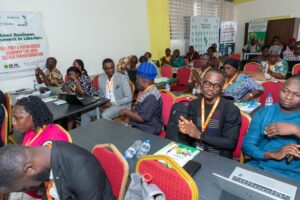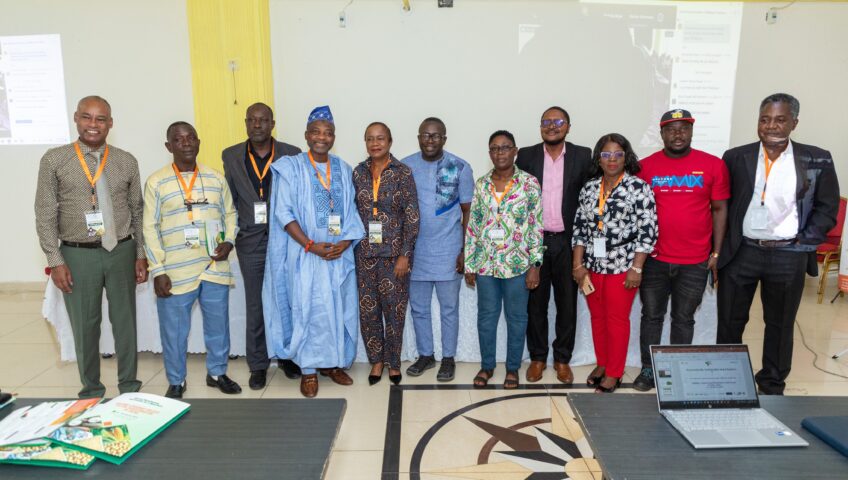Liberia and international partners have developed a seed road map to help transform the country’s agricultural sector, which has been badly devastated by civil war.
From 1989 to 1996 and 1999 to 2003, Liberia suffered civil wars that claimed the lives of more than 200,000 people, destroyed a once-viable economic infrastructure, suffocated the seed system, and put the country in the league of food insecure states.
At a two-day seed business summit held recently in Monrovia, the Liberian capital, the government of Liberia and international partners developed a seed road map for cassava, maize, rice, soybeans and aquaculture.
The international consortium was led by the Building an Economically Sustainable Integrated Cassava Seed System, Phase 2 (BASICS-II) project of the International Institute of Tropical Agriculture (IITA). Partners included the AfDB-funded Technologies for African Agricultural Transformation (TAAT) and the Sasakawa Africa Association (SAA-Nigeria).
The seed road map mirrors the BASICS model and its success stories and aims to address seed production and distribution bottlenecks, certification, quality control and capacity building for the country’s Central Agricultural Research Institute (CARI). The plan is to focus on business development for early-generation seed (EGS) entities, nurturing commercial seed entrepreneurs (CSEs), advocacy, and scaling.
The BASICS model is a seed system model generated by two projects— Building an Economically Sustainable Integrated Cassava Seed System in Nigeria (BASICS I & II); and Building an Economically Sustainable Cassava Seed System in Tanzania (BEST). In countries where it is in use, the model supports an ecosystem of seed actors – breeder, foundation, and certified seed producers through breeding programs, early generation seed companies, cassava seed entrepreneurs, processors, and seed quality regulators.
Speaking on the prospects of leveraging the successful seed system model, the Liberian Minister of Agriculture, Dr Alex Neutah, represented by Moses R. Gbanyan, the Deputy Minister for Regional Development Research and Extension, reiterated the government’s determination to boost the progress already being recording with international development partners.
“President Joseph Boakai has stressed his commitment to seed funding, seed development and seed consistency, hence keying into working models and comprehensive strategies is critical for us to transform our seed systems in rice, maize, soybean, aquaculture and cassava”, he said.
The Director for Agriculture and Agro-Allied Industry at AfDB, Dr Martin Fregene, commended the Liberian President for his “high aspirations to tackle the low level of use of the latest agricultural technologies including improved seeds”.
“I’m glad the President is engaged in talks for the financing of his agricultural development agenda and for recognizing that seed is key to the programs,” he said. “High productivity is evident anywhere good seeds are being used. So, you can be rest assured of AfDB’s support”

The Project Manager of BASICS-II, Prof Lateef Sanni, also hailed the Liberian government’s commitment but called for “zeal and willingness to go the whole hog” saying that seed sector transformation happens where the leaders “match words with action with regards to removing red tapes and bottlenecks. “Once we all work hard on this road map, we’ll begin to get success stories in no time”, he said.
According to the Country Director of SAA-Nigeria, Dr Godwin Atser, the seed roadmap provides the needed ‘Oxygen’ to revamp the agricultural sector in Liberia. “We need a document that will stimulate private sector participation in the breeder and foundation seed sector and create an economically sustainable value chain in which virus-free seeds of improved varieties are multiplied and disseminated to farmers,” he said.
Commending Liberia for its readiness to replicate the BASICS model, the Senior Program Officer for the Bill and Melinda Gates Foundation, Lawrence Kent, urged stakeholders to learn from the success being recorded in Tanzania and Nigeria.
His words: “The cassava seed system intervention is a good investment for agricultural development. In Tanzania, farmers using improved cassava varieties sourced from certified seed entrepreneurs are recording 81% higher yields than those not using it. Similar success is being achieved in Nigeria and other places where the BASICS model is being replicated.”
Speaking earlier, the IITA Director for Development and Delivery Office and Country Representative, IITA-Sierra Leone Station Office, Dr Alfred Dixon harped on continuous collaborations, partnerships and close observance of how the seed sector is being transformed in other geographies.
“We need unparalleled networking opportunities to ensure that the road map leads to the desired destination in the shortest possible time,” he stated.

